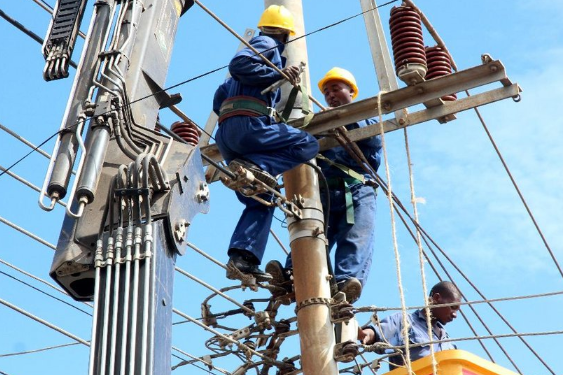Bwire: Efficiency and commitment needed in ending energy poverty in Kenya

Amidst
a growing realization that the energy poverty facing Kenya just like the rest
of the countries in Africa remains present, President William Ruto made a very
powerful mention of his intention to reverse this trend, it might not have
caught the attention of many, but within some of that follow the climate change
discussions, showing interest in pushing the realization of the energy
sovereignty in Africa excites.
The
energy deficit in our country is something that must be tackled ruthlessly if
we must solve this- the country is highly endowed with several energy sources
including geothermal, solar, wind and hydrological sources that it embarrasses
when citizens struggle to access clean energy simply because of ambiguous and
conservative policies, inefficient monopolies, stressed financial resources and
corruption in the sector.
In
his speech, President Ruto noted that Kenya
is on a transition to 100% clean energy by 2030 and affirmed his commitment on
the same. The President acknowledged that access to clean and improved
cooking solutions as a contribution to Kenyans efforts towards adopting to
climate change resilienceremains a challenge because of financing.
He
particularly noted that the clean cooking sector require urgent attention,
because its continued neglect will frustrate the country’s efforts towards
dealing with pollution, improved health through decreased disease burden and
mitigate adverse effects of climate change. The President noted that it’s
possible to achieve these throughreducing costs of renewal energy technologies making it the most viable energy source.
Universal access to clean,
reliable, modern, affordable and sustainable energy as a prerequisite for the
Agenda 2063 remains a big challenge as seen through the corruption in the
sector, secret negotiation of power purchase agreements, none disclosure of electricity
price per unit kilo watt hour, low voltage, blackouts and reduced production in
manufacturing sector.
You remember the token issue
in Kenya, the Power Purchase Agreements and related. Ksh 1000 was buying 63
units a few months ago, it’s now 45 units, we have frequent power black outs in
Busijo because of faulty transformers, and even at the policy level, a solar
producing firm with capital to put up a serious solar production distribution
network in Busia County called Kudura cannot do that because the monopoly
holding power company is being protected. Or may be its because of the war in
Ukraine
Note that over 600 million
people do not have access to electricity while 900 million people lack access
to clean cooking energy, yet there’s still no clear investment plan to meet
this clean energy needs even as the population grows.
A study by the CCAK and the Ministry of
Energy entitled Kenya Household Cooking
Sector Study released recently, 93.2 per cent of Kenyans in the rural areas
still rely on solid fuels as their primary fuel source. Using clean cooking
solutions will support the Government to restore Kenya’s forest cover to 10 per
cent from the current 7 per cent. Furthermore, household air pollution brought
about cooking using inefficient technologies is a key health risk factor to
Kenyans.
Over the last 15 years, nearly 8,000 Megawatts has been developed by several players including private and small-scale innovative players in the sectorbut yetto beadmitted to the National Grid, for whatever reasons, largely attributed to policy makers, Thus we continue suffering not because of lacking but leadership in the sector and policy direction.
For example, South Africa with a
population of 60 million people has been able to admit 58,000 Megawatts in their
national grid from various developers with ESKOM leading the pack. Nigeria with a population of 200 million
people has been able to admit approximately 6,000 Megawatts only in their
national grid paving way for rampant blackouts in the most populous African
Country with the largest GDP.
Mozambique with a population of 31 million people has been able to admit 12,000 Megawatts in their National Grid, however Zambia with a population of 18 million people have injected 3,000 Megawatts in their National Grid.
Mr. President, there’s urgent need for a
collective approach by the sector especially at the policy making levelto
salvage this ailing sector that runs our day-to-dayactivities and as you
rightly said, help in achieving the energy sovereignty on the continent.
Kenya’s Vision 2030 and related documents like the country’s national climate
change strategy and the Green Growth strategy mention this commitment and your
statement is show of political goodwill, so resource the transition please.
Want to send us a story? SMS to 25170 or WhatsApp 0743570000 or Submit on Citizen Digital or email wananchi@royalmedia.co.ke
Comments
No comments yet.


Leave a Comment